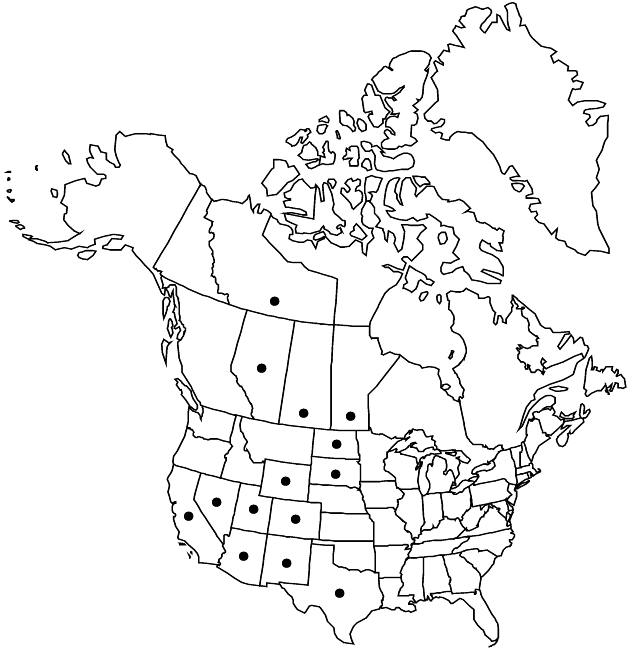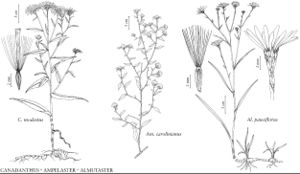Almutaster pauciflorus
Taxon 31: 356. 1982.
Common names: Marsh alkali aster
Basionym: Aster pauciflorus Nuttall
Treatment appears in FNA Volume 20. Treatment on page 461.
Revision as of 15:17, 18 September 2019 by FNA>Volume Importer
Plants laxly colonial. Stems sometimes reddish at base. Leaves: blades 10–100 mm, margins sometimes ciliate or (distal) stipitate-glandular, apices mucronulate; basal sometimes marcescent, petiole bases widened, clasping, apices obtuse or acute; cauline reduced distally, subclasping, apices acute. Heads (1–)3–10(–30+), each terminating long, ascending branch. Peduncle bracts 2–9, glandular. Phyllaries ± green, margins erose-hyaline, inner more widely so, apices mucronulate. Ray floret laminae 5–8 mm. Cypselae golden brown, ribs stramineous. 2n = 18.
Phenology: Flowering spring–fall.
Habitat: Damp alkaline places, alluvial soils, with halophytic vegetation, inland salt marshes, along streams in ravines, ditches, in desert and dry prairie areas
Elevation: 200–2400 m
Distribution

Alta., Man., N.W.T., Sask., Ariz., Calif., Colo., Nev., N.Mex., N.Dak., S.Dak., Tex., Utah, Wyo., Mexico.
Discussion
Selected References
None.
Lower Taxa
None.
